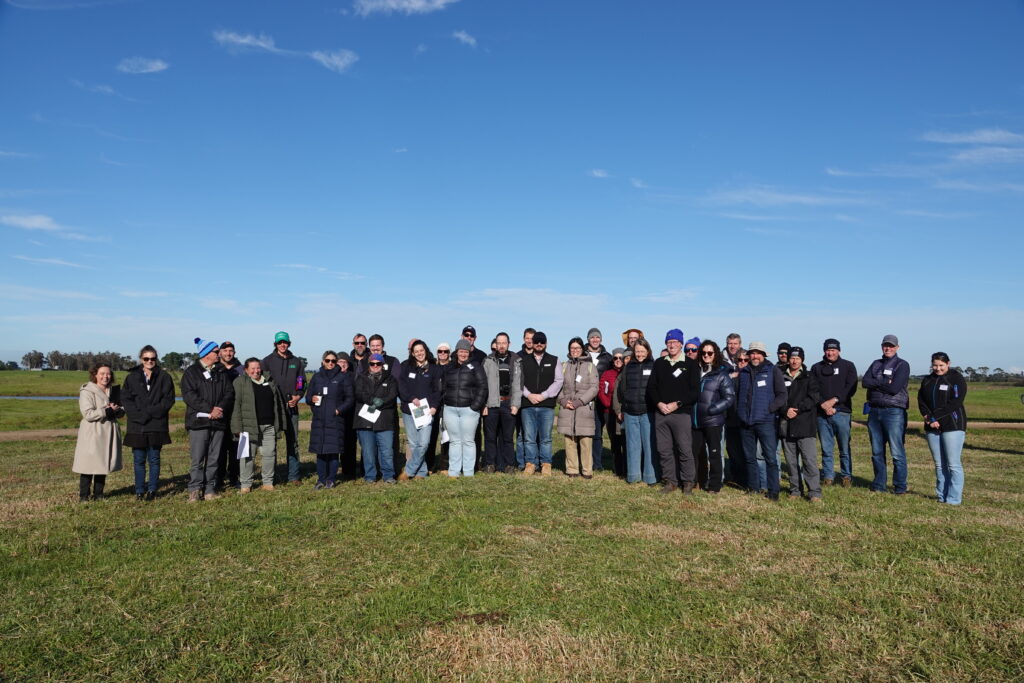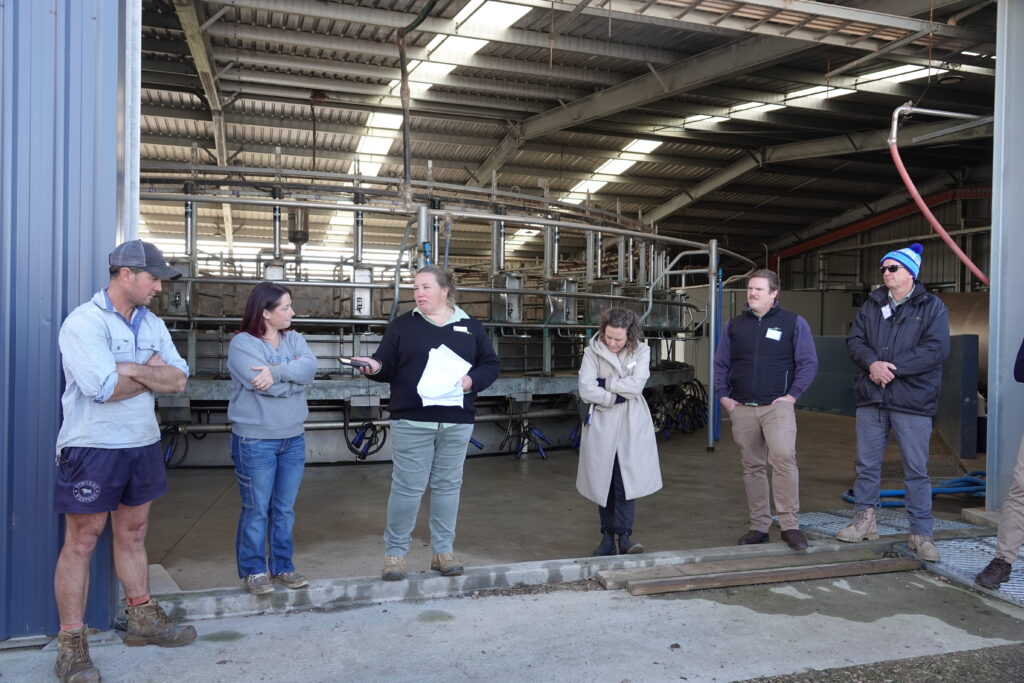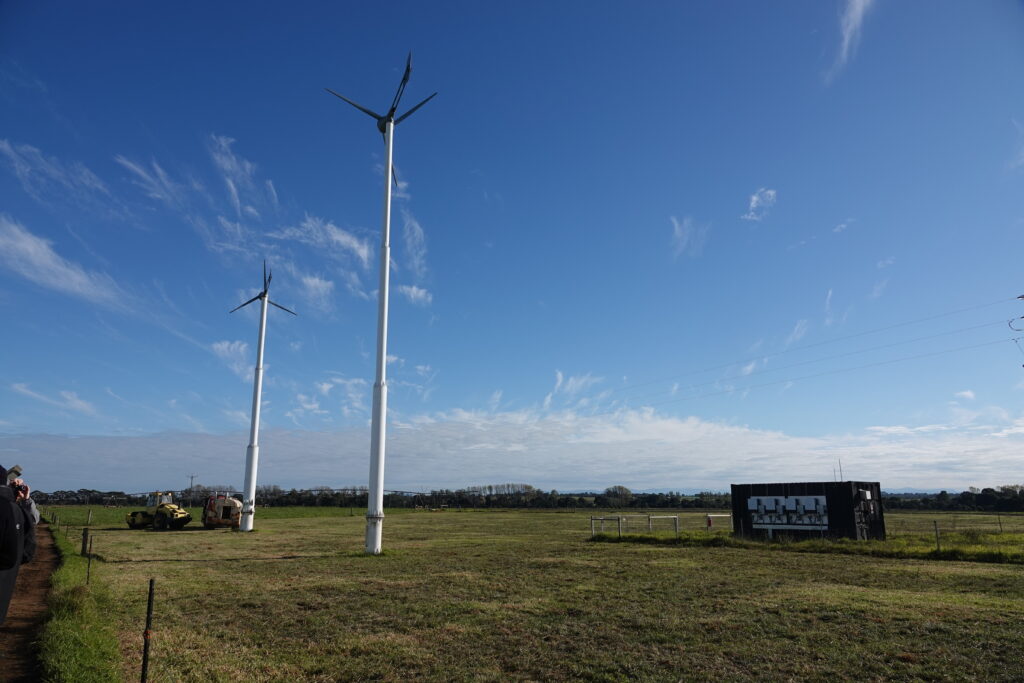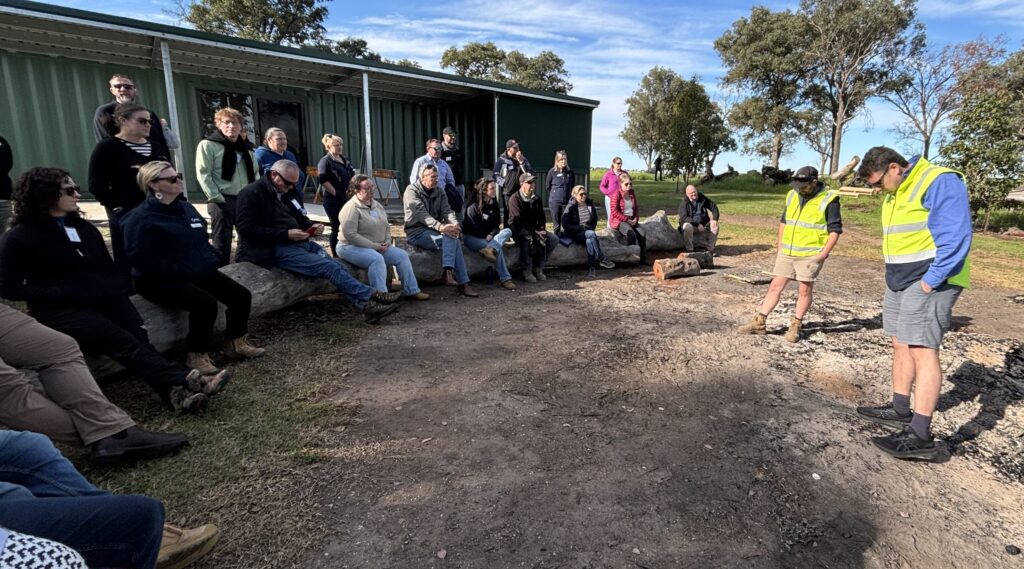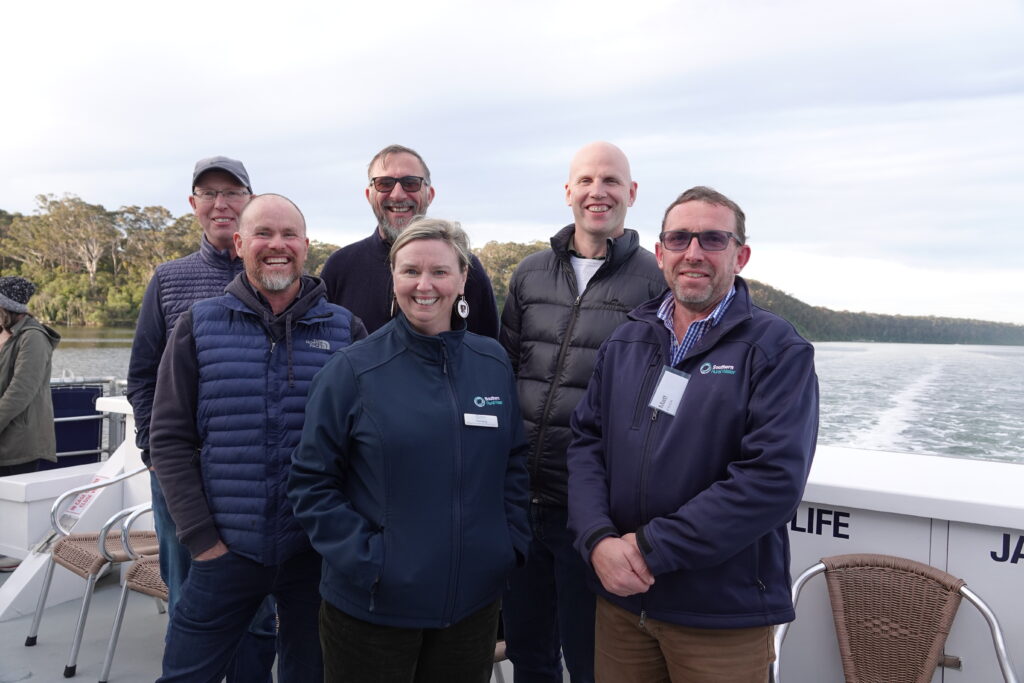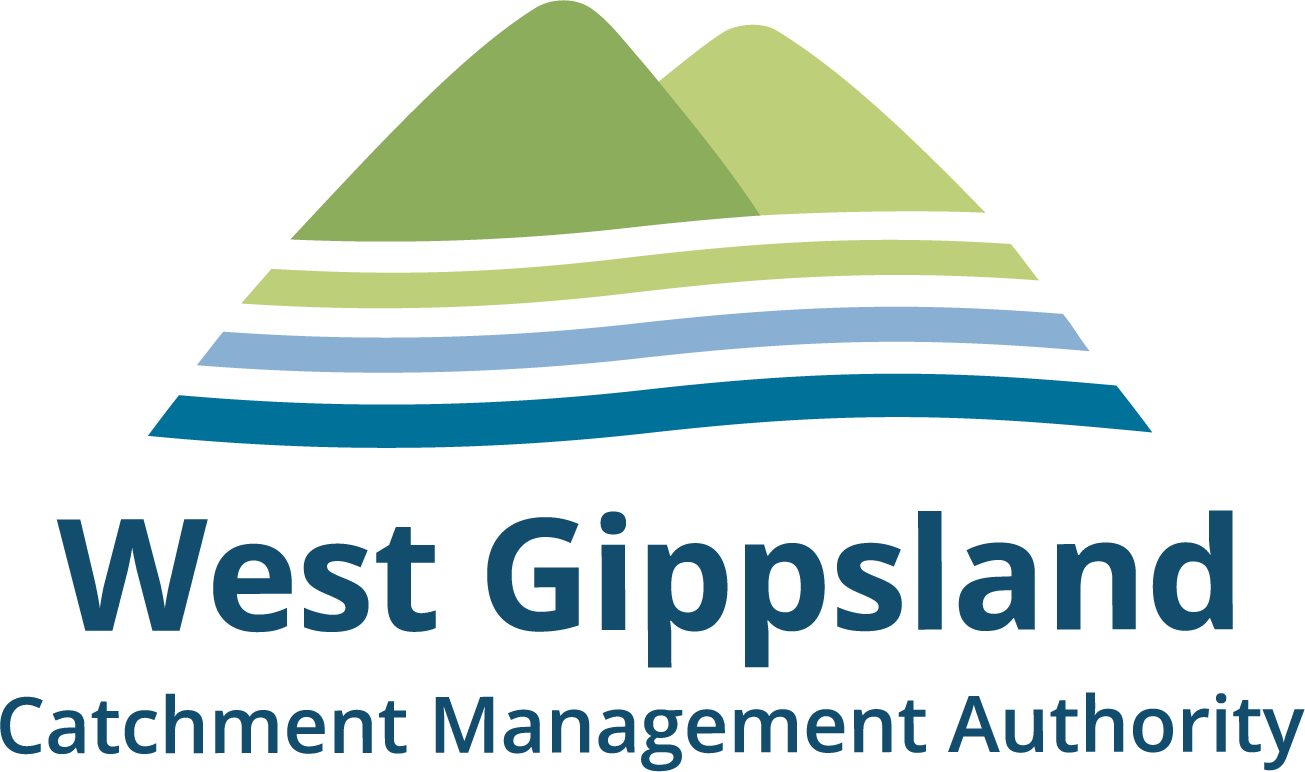Water the key to future proofing Gippsland farms
Access to water means everything to farmers and working to maximise this precious resource is key. Recently, West Gippsland Catchment Management Authority (CMA) was proud to host the state’s sustainable irrigation support staff for a two-day forum, in collaboration with Agriculture Victoria. Attendees shared knowledge and heard from Gippsland farmers on the ground where the impacts of their work are showcased best.
“For the past 25 years, West Gippsland CMA’s sustainable irrigation program has worked to reduce the environmental impact of irrigation and increase efficiencies and productivity for busy farmers,” said Anthony Goode, Sustainable Irrigation Project Officer for West Gippsland CMA.
“This successful model is replicated in CMAs across Victoria supported by Agriculture Victoria through Department of Energy, Environment and Climate Action.
A highlight of the program was a full day farm tour across the Gippsland region, to meet the farmers and learn about the benefits, challenges and opportunities of sustainable irrigation firsthand.
On board the bus were representatives from CMAs across the State, DEECA, Agriculture Victoria and Southern Rural Water. As they travelled, CMA and Agriculture Victoria team members gave a quick history of the Macalister Irrigation District.
They discussed tackling the ongoing challenge of irrigation-induced salinity. The area’s intricate drainage network was developed in the 1960s with 500 kilometres of constructed drains and 19 groundwater control pumps. These systems, along with improving irrigation efficiencies and modernisation have helped to ensure a prosperous and resilient irrigation industry for the region.
First stop on the tour was Willandra Farms in Clydebank. The certified organic farm sits in stark contrast to surrounding properties with swathes of revegetation, wetlands, solar panels and wind turbines. Operating on regenerative principles, the family has a desire to become carbon neutral and is already running fixed spray and pipe and riser irrigation using solar power.
Wilco Droppert and Sandra Jefford, their son Luke and daughter Sophie thrive on innovation and are always ready to participate in trials. Most recently it was the site of a sustainable irrigation demonstration site showcasing their ability to maximise solar energy utilisation in their irrigation system.
Son and second generation farmer, Luke, spoke passionately about the farm and their sustainable irrigation journey and how it is a living representation of the family’s values.
Next up was Jessica and Stephen Knight’s Dairy Farm in Llowalong, located within the area of the proposed Macalister Fresh irrigation district expansion, being planned by Southern Rural Water. The couple’s focus is on farm development for future water security and best practice supported by their detailed Farm Plan.
The farm is located next to the Avon, the fastest rising river in the southern hemisphere. “We need to get our pumps out every time someone sneezes,” joked Jess as she welcomed the group.
Jess and Stephen gave a great summary of the importance of water security in farming and how embracing opportunities and new technologies when they happen is a key strategy for successful farming.
Irrigation farm planning, a process supported by the Sustainable Irrigation Program, is fundamental to helping achieve their business goals.
“Farm plans are an essential part of the process,” Caelan McIntosh, Agriculture Victoria Irrigation Extension Officer told the group. “The plans give farmers, regulators and importantly the bank managers, all the information and confidence they need to invest in irrigation and their business.”
The couple has put in three new pivots, pipe and risers and a turkey’s nest dam.
“Our biggest issue is water security. These measures to secure water allowed us to expand and was a catapult for all we’ve achieved. You’ve got to be on the front foot and make decisions quickly – that’s what the drought taught us,” said Jess.
“But the decisions have to stack up – it’s a business not a hobby,” Stephen quickly added.
The group then travelled to Lindenow Valley on the Mitchell River in East Gippsland to see vegetable production in action in the rich, fertile Lindenow Valley. Bulmer Farms is one of approximately 12 commercial vegetable growers in the Valley and is one of Australia’s biggest salad producers.
The team explained that the 2,000 acre farm produces baby leaf salads and employs 130 people. The farms utilises water allocations from the Mitchell River and some groundwater and has also built a 300 Megalitre storage dam to further increase their water security. “Water is a future proofer,“ they told the group.
Anthony Goode summed up the event as the bus pulled back into Sale. “Days like this highlight the importance of working together over decades to make real and lasting change. We were incredibly proud to showcase the region and its people, learn from each other and talk through the challenges and opportunities ahead and how we can use innovation and collaboration to tackle them head on.”
West Gippsland CMA has been partnering with Federal, State and local agencies, industry groups and landholders to improve the health of the Gippsland Lakes for over 25 years. Their Sustainable Irrigation Program in the Macalister Irrigation District supports innovative irrigation and nutrient management technologies in the Lake Wellington Catchment. Its success relies on famers like those met on the tour and of irrigators being prepared to host demonstration sites on their farms.
Implemented with Agriculture Victoria, in partnership with Southern Rural Water, the Sustainable Irrigation Program supports local irrigators to implement on-farm management practices that improve water use efficiency and reduce agricultural runoff. Over the 25 years, the cumulative efforts of the Program and the irrigation community have now reduced exports of nutrient rich agricultural runoff by over 46 billion litres of water each year and prevent 23 tonnes of Phosphorous from entering the Gippsland Lakes.
West Gippsland CMA is responsible for over 40,000 kilometres of designated waterways across the region and delivers programs for healthy and resilient catchments. All these waterways flow to the Victorian coast, discharging through the Gippsland Lakes, or directly into Bass Strait and the Southern Ocean.
Become a river lover
Find out more about the work we do and sign up to our e-news for updates.
